Directed by Toka McBaror, Underbelly is a period film set in 1976, using the approaching FESTAC event as a backdrop. Ojo (Femi Adebayo) and Afang (Smart Conrad) journey from the Southern region of Nigeria to the North to work in a leather-making factory. The friends hope to make enough money to attend the Second World African Festival of Arts and Culture (FESTAC) taking place in Lagos at the beginning of the next year. Their arrival at the factory is not warmly welcomed by the locals and co-workers, especially with reckless Afang’s philandering escapades with other people’s wives. Also, they unknowingly walk into a covert illicit drug operation in the factory, a complication that puts their lives in great danger.
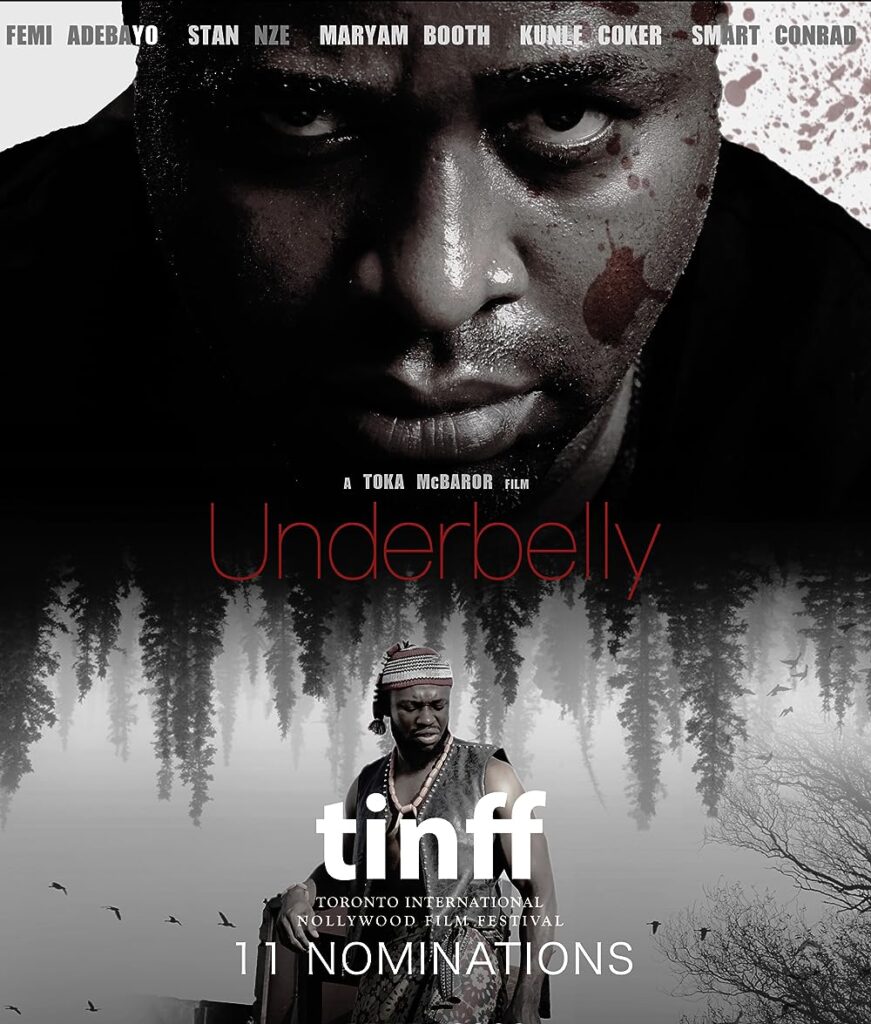
Underbelly opens with a lot of promise, creating intrigue with shots that establish the locale, time and culture in which the film is set in. It first gives the impression of a film set in colonial times, a notion which is soon dispelled by the mention of FESTAC 77 and the presence of TVs, as the rich traditional elements shown are features not readily expected in modern times. Still, it is a testament to the effort that must have been put into research and small details. One of the most impressive aspects of the elaborate set is the leather factory, which appears to have been either revived or set up specifically for the film’s production.
The leather factory and the workers’ resident camp are the main locations for most of the events of Underbelly. The film succeeds at creating a secluded world that has the necessary conditions for the story to happen, a microcosm of the country at that time. The characters come from different parts of the country, creating a diverse locale without sacrificing originality. Most of the characters’ identities are depicted without the use of lazy characterization and are mostly subtly revealed with dialogue.
Underbelly doesn’t fulfill the promise it opens with, and that’s what the film remains till the credits – promising. The phlegmatic manner in which the action begins, along with the use of a mystic premonition, builds up the occurrence of an ominous incident in the plot. Also, Herbalist Ubale (Akume Akume) foresees calamity for the leather factory with the arrival of strangers (Ojo & Afang). Most of the film becomes a wait for this ominous event to happen as the conflict is not set until almost 40 minutes into the 80-minute film.
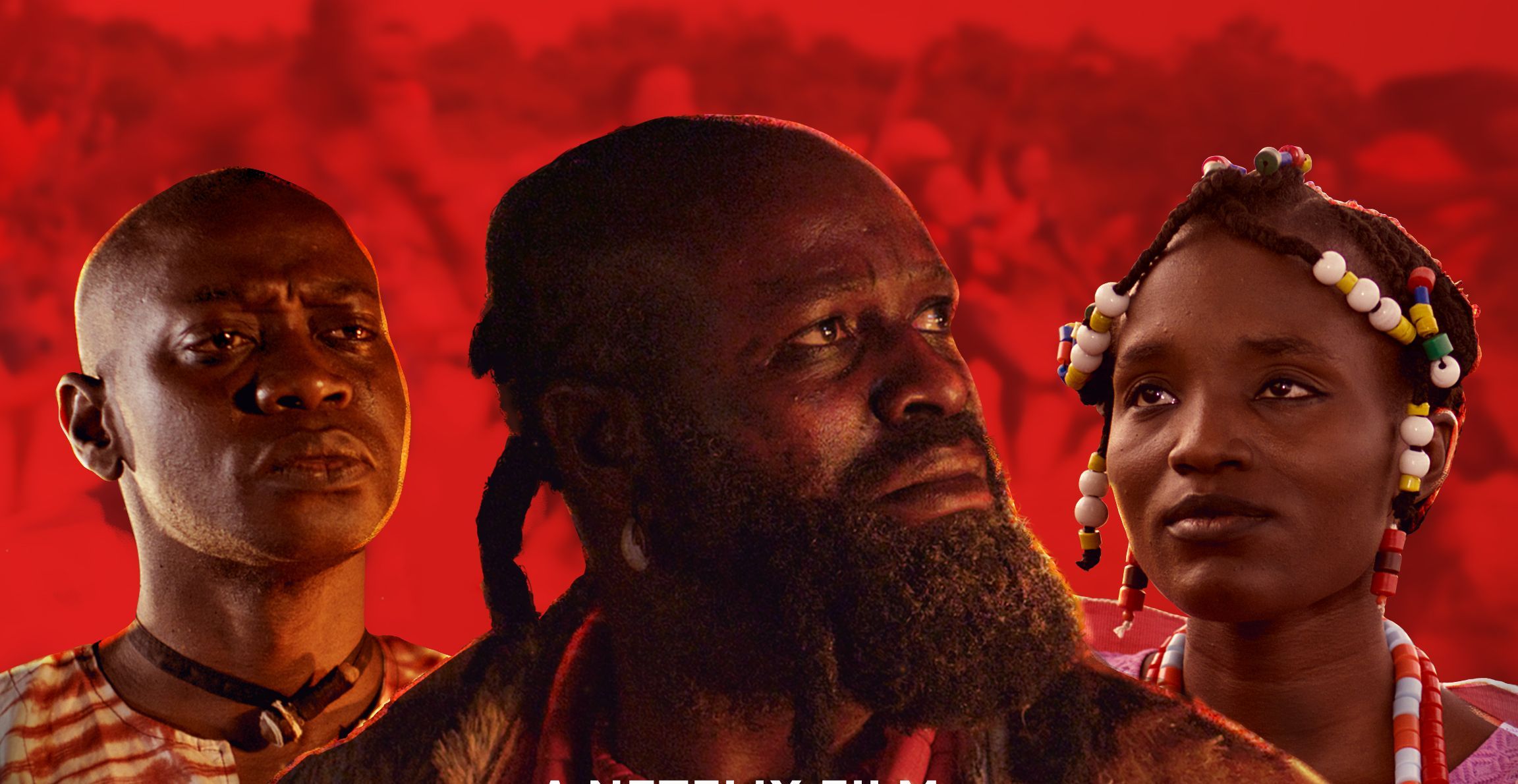 ‘Jagun Jagun (The Warrior)’ Review: Lateef Adedimeji is Our Champion in Typical Yoruba Epic
‘Jagun Jagun (The Warrior)’ Review: Lateef Adedimeji is Our Champion in Typical Yoruba Epic
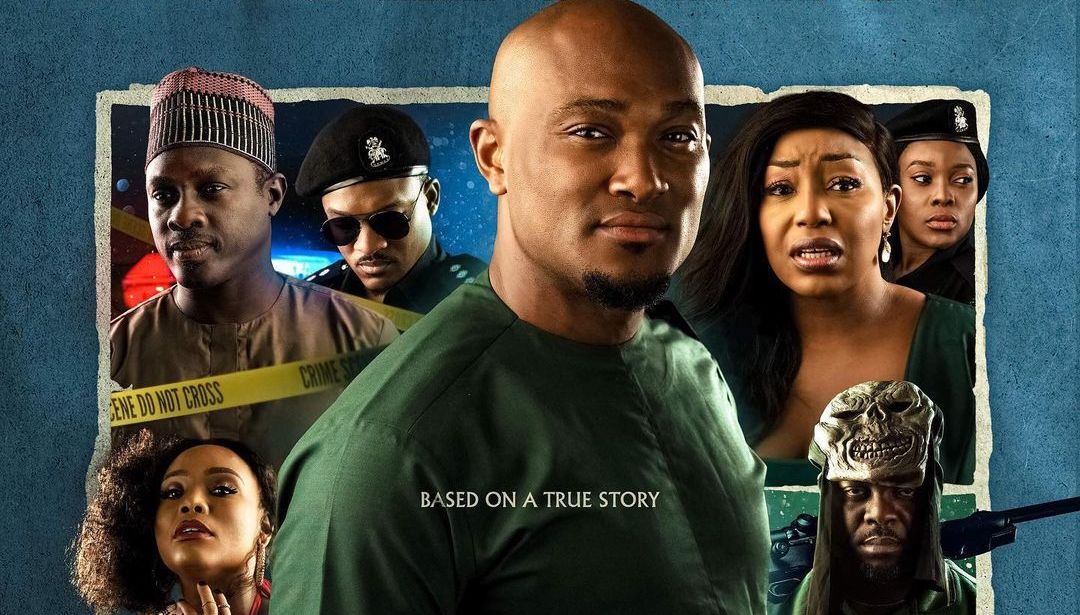 ‘The Trade’ Review: Blossom Chukwujekwu-led Timely Story Gets Required Attention and Care
‘The Trade’ Review: Blossom Chukwujekwu-led Timely Story Gets Required Attention and Care
To set the plot rolling, a few premises are set up: Ojo had come to make money to attend FESTAC; whilst these details are plausible, it is a convenient way to evade in-depth exposition. Why have Ojo and Afang come all the way from the South West (probably Lagos where it will be held) to the North to find work to be able to afford to attend the festival; Wouldn’t it have been more prudent, and safer to find work in the South? This, as well as the manner of exposition of the factory’s illegal drug activity, are significant premises on which the plot stands and are depicted unconvincingly without enough details.
Another drawback of the plot is the inexplicit depiction of the motivations of the characters. Chigbo (Stan Nze) goes on a spree of vengeance when his sister commits suicide; his reason, “that they failed to protect his sister in his absence”, does not satisfy the story and he might have as well just been a serial killer killing for sport.
Another positive of Underbelly is the cinematography, using well-crafted shots to tell the story and define the dynamics between characters. The characters in the film are played by a mix of well-known names and not-so-popular actors. Although the film seems not to task the actors too much as the story is being told more by actions rather than dialogue, the cast delivers good performances. Smart Conrad, who also doubles as the screenwriter, excels in his role, applying to his character the right energy and mannerisms needed to define it, while Femi Adebayo (Jagun Jagun) impresses and shows his versatility in a role he’s not regularly seen.
The potential of Underbelly is unfulfilled as a result of inadequate storytelling. The conflict is not quickly set and after it is, the story is rushed to get it to an ending. Nonetheless, it succeeds in other aspects like showing a part and time of Nigeria that has been forgotten by most people and depicting a different representation of the North than is usually seen.
Underbelly premiered on August 18, 2023 on Prime Video.
Share your thoughts in the comments section or join the conversation on Twitter.
Sign up: Keep track of upcoming films and TV shows with Google Calendar.
Side Musings
- Why are none of the TVs on throughout the film?
- The Herbalist is a fraud.
- The timeline is confusing, How long have they spent there? It doesn’t look like much, especially not enough for the events that happened to occur.
- What exactly were the drugs?
- What money did he need for the FESTAC festival? Transport fare? Ticket fees? Survival funds?

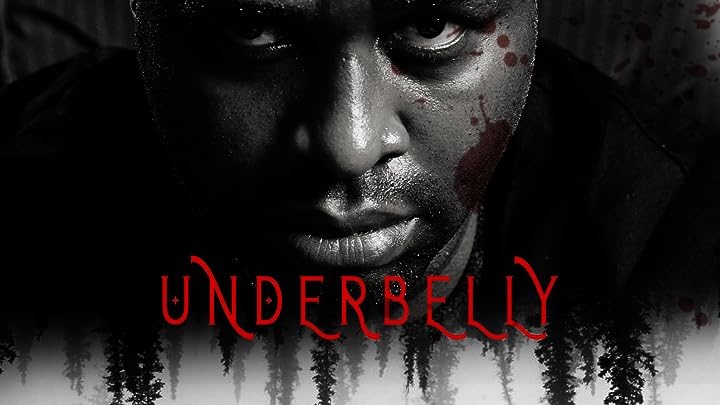

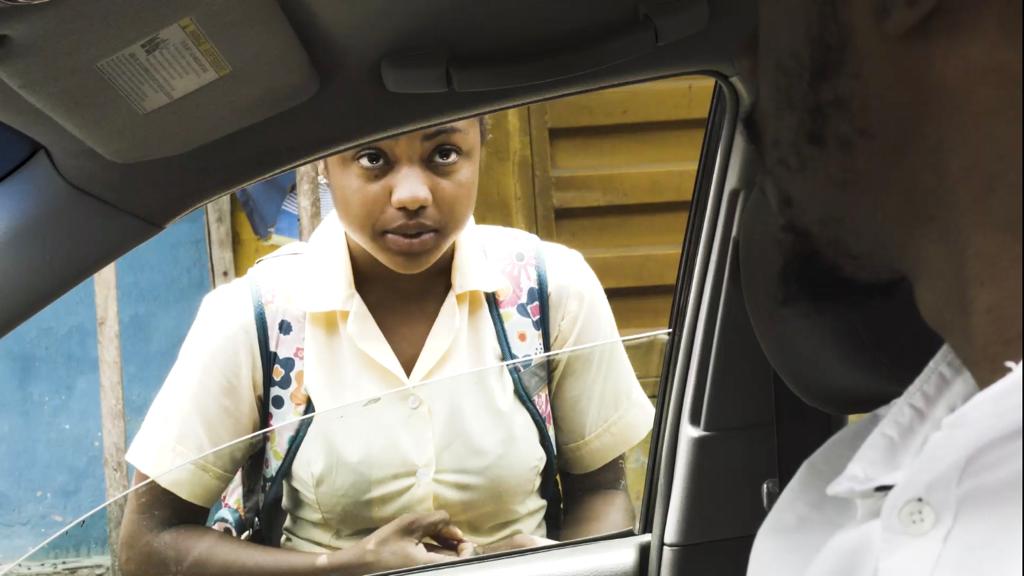

Thank you for sharing your unbiased opinion. It was helpful and insightful.